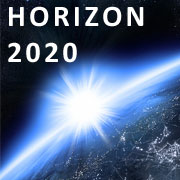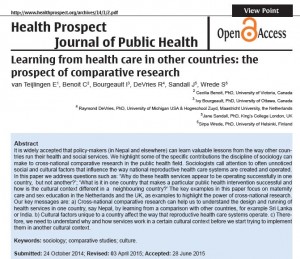The EPSRC‐funded Programme Grant “Silicon Photonics for Future Systems (SPFS)” includes an innovation fund to enable the inclusion of additional partners to bring additional value to the programme.
Initial engagement will be via short research projects that support the aims of the programme. Therefore, proposals from UK‐based academic researchers are invited for projects valued up to £100k to support the research areas of the Programme Grant.
Closing Date: 26 August 2015 at 5pm
The EPSRC Engineering theme, in partnership with Dstl and the BBSRC, are inviting proposals that explore research in the area of Synthetic Biology applications for Protective Materials. Funds of up to £2.5 million are available. We expect to support between four and five research projects, up to three years in duration, subject to the quality of the proposals received. Under this partnership, funding is available to support cutting-edge, novel academic research on new applications for Synthetic Biology with regard to protective materials. Proposals will be assessed through external peer review followed by a panel meeting.
Applicants must complete the Intent to Submit survey on this page by 28 August 2015; applicants who do not do this will be ineligible for the call.
The closing time and date for full proposals is 16:00 on 01 October 2015.
By submitting a full application to this call you give Dstl, EPSRC and BBSRC the right to show it to other Government departments in confidence.
High Value Manufacturing Catapult fellowships aim to strengthen relations between academics and manufacturers, and accelerate the transition of research from the laboratory to industry.
Funded by EPSRC and coordinated by the University of Sheffield AMRC, the fellowship programme aims to increase academic involvement in the High Value Manufacturing Catapult. Academic fellows will carry out research at one or more of the seven centres that form the HVM Catapult, a national network backed by Innovate UK.
The fellowships will enable academic staff to spend six-month research visits, spread over one to four years, in one or more of the HVM Catapult centres. The projects must be aligned to work previously funded by EPSRC.
EPSRC and Innovate UK are now inviting proposals for the third round of fellowships. For more information and to apply, please visit the High Value Manufacturing Catapult fellowships website, or email: catapultfellowships@sheffield.ac.uk
Closing Date: 28th August 2015
The Arts and Humanities Research Council (AHRC) and Indian Council for Historical Research (ICHR) are pleased to announce a joint call for Research Networking projects addressing the theme of ‘Cultural Heritage and Rapid Urbanisation in India’. Funding of between £30,000-£45,000 per project for UK applicants is available on a full economic cost (fEC) basis with AHRC meeting 80% of the fEC. Matched resources are available from ICHR for Indian applicants. Awards should have a duration of up to 6 months and will be expected to start between 1st December 2015 and 1st February 2016. It is expected that 4-5 awards will be made under this call.
Awards will be funded through the Newton Fund – a 5 year programme that aims to strengthen research and innovation partnerships between the UK and emerging knowledge economies.
Closing Date: 22 September 2015 at 4pm
The Department for Business, Innovation and Skills (BIS) is to invest up to £20 million* in collaborative R&D projects and feasibility studies (delivered by Innovate UK on behalf of BIS) to stimulate developments in autonomous vehicles and connected transport systems.
Building on the government’s ‘Introducing driverless cars to UK roads’ collaborative research initiative, this competition aims to encourage development of connected and autonomous vehicles, focusing on three themes – connectivity, autonomy and customer interaction – along with catalysing new business models. Proposals must be led by a business and be collaborative. We are primarily seeking to fund collaborative research and development (industrial research). Small business partners could receive up to 70% of their eligible project costs, medium-sized businesses 60% and large businesses 50%.
We welcome consortia led by any sized company and particularly encourage proposals from medium-sized companies. Research organisations may participate as collaborators in a consortium but business partners must incur at least 70% of the total eligible project costs. We expect collaborative R&D projects to range in size from total costs of £1 million to £5 million. We encourage overseas-based partners to participate in consortia by conducting their R&D in the UK. Up to £2.5 million of the total funding will be available for smaller-scale feasibility studies. These are open to companies working alone or collaboratively. Small businesses could receive up to 70% of their eligible project costs, medium-sized businesses 60% and large businesses 50%. We expect feasibility studies to range in size from £50,000 to £250,000.
The deadline for applications is at noon on 30 September 2015.
There will be a briefing in London for potential applicants on 4 August 2015.
Offering up to £50,000 over three to twenty-four months for experienced researchers to conduct a programme of research in any discipline. Research Fellowships are open to experienced researchers, particularly those who are or have been prevented by routine duties from completing a programme of original research. Awards are not limited to those holding appointments in higher education.
The maximum value of a Fellowship is £50,000. The awards provide research expenses over and above normal living costs and/or provide a contribution towards reasonable replacement costs or loss of earnings. Please ensure that applications do not include any ineligible costs.
Fellowships are tenable for between 3 and 24 months, and the current round of awards must commence between 1 June 2016 and 1 May 2017.
Closing Date: 12 November 2015
Enabling established researchers based at a UK higher education institution to spend a period of time in overseas research centres, to develop new knowledge, skills and ideas. Up to £40,000 is available for a period of three to twelve months.
International Academic Fellowships provide established researchers with a concentrated period based in one or more research centres outside the UK. The intention of the scheme is to provide opportunities to develop new knowledge, skills and ideas, and may for example be used for the following:
- observing and learning ground-breaking techniques or practices
- developing new lines of research through overseas collaboration
- making “discipline-hopping excursions” into new areas of research
- developing innovations in teaching
- exchanging ideas
If you wish to dedicate a period abroad entirely to a research project you should apply to the Trust’s Research Fellowships scheme.
The maximum value of a Fellowship is £40,000. Eligible costs include: reasonable replacement cover whilst the Fellow is overseas; travel to and within the overseas country or countries; a maintenance grant to meet the increased expense of living overseas; and essential research costs.
Please ensure that applications do not include any ineligible costs.
Fellowships are tenable for between 3 and 12 months, and the current round of awards must commence between 1 June 2016 and 1 May 2017.
Closing Date: 12th of November 2015.
MRC and NIHR invite applications (through the Methodology Research Programme) to conduct research into methodology for expert opinion elicitation. A vignette (PDF, 206KB)commissioned by the Methodology Advisory Group provides more background information. Applications are particularly sought on the following:
- A short project to compare the available expert elicitation protocols and software and to identify strengths and weaknesses with the aim of identification of the most important aspects of “good” expert elicitation. This could lead into a longer-term project to propose and validate an optimally efficient protocol and software.
- Investigation of whether the mode of expert opinion elicitation affects results. It would be valuable to validate individual elicitation methods/protocols, and to conduct head to head comparisons of different elicitation methods/protocols. Are different/more reliable answers achieved with an elaborate, structured method versus a streamlined one? E.g. comparison of face-to-face vs online methods.
- Methodology to identify and understand the range of opinions that are being obtained from an elicitation exercise, particularly where they may be conflicting.
- Methods for synthesis of elicited expert opinion with other strands of evidence, to inform e.g. HTA or diagnostic decision making.
Applications for projects are invited through the normal MRC funding grant schemes (research grant, new investigator research grant etc.) and will be considered at the regular Methodology Research Programme Panel meetings, to this competition’s usual deadlines. These will be in competition with other applications received, but the Panel will be mindful of the strategic importance of this area.
Closing date: 19 Nov 15
Providing research expenses of up to £22,000 over up to two years to enable senior researchers who have retired from an academic post to complete a research project and prepare the results for publication. The 2016 round opens on 1 September 2015. The maximum value of a Fellowship is £22,000.
- Travel and subsistence costs for periods away from home
- The employment of a research, clerical or secretarial assistant to support (rather than conduct) the work of the applicant
- Photocopies
- Photographic expenses
- Office or laboratory consumables.
There is no provision for a personal maintenance allowance or remuneration for the applicant under this scheme. Please ensure that applications do not include any ineligible costs.
Closing Date: 4th February 2016
 EC Info days: relating to Secure, Clean and Efficient Energy are being held on the: 14th-15th September 2015 in Brussels
EC Info days: relating to Secure, Clean and Efficient Energy are being held on the: 14th-15th September 2015 in Brussels 



















 Fourth INRC Symposium: From Clinical Applications to Neuro-Inspired Computation
Fourth INRC Symposium: From Clinical Applications to Neuro-Inspired Computation Writing policy briefs
Writing policy briefs Upholding Excellence: The Concordat to Support Research Integrity
Upholding Excellence: The Concordat to Support Research Integrity Today’s Documentation Will Serve Tomorrow’s Justice
Today’s Documentation Will Serve Tomorrow’s Justice ECR Funding Open Call: Research Culture & Community Grant – Application Deadline Friday 12 December
ECR Funding Open Call: Research Culture & Community Grant – Application Deadline Friday 12 December MSCA Postdoctoral Fellowships 2025 Call
MSCA Postdoctoral Fellowships 2025 Call ERC Advanced Grant 2025 Webinar
ERC Advanced Grant 2025 Webinar Horizon Europe Work Programme 2025 Published
Horizon Europe Work Programme 2025 Published Horizon Europe 2025 Work Programme pre-Published
Horizon Europe 2025 Work Programme pre-Published Update on UKRO services
Update on UKRO services European research project exploring use of ‘virtual twins’ to better manage metabolic associated fatty liver disease
European research project exploring use of ‘virtual twins’ to better manage metabolic associated fatty liver disease